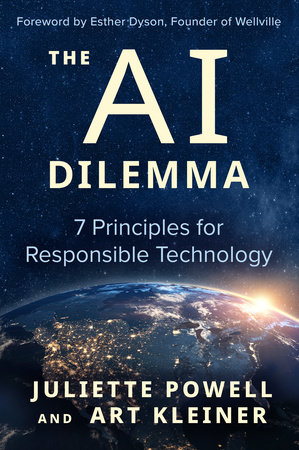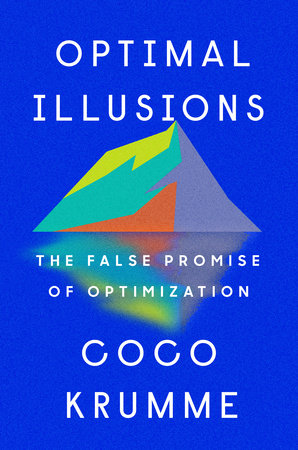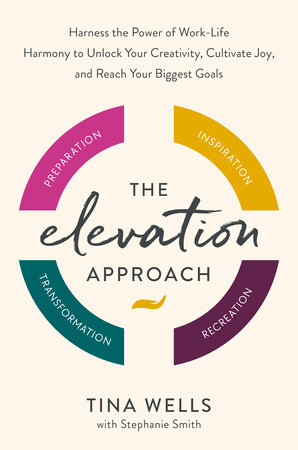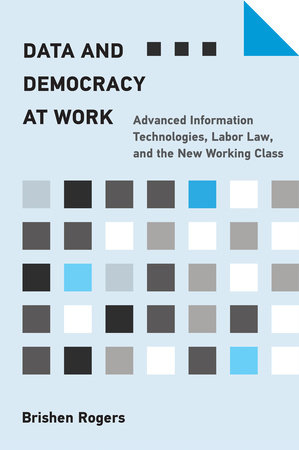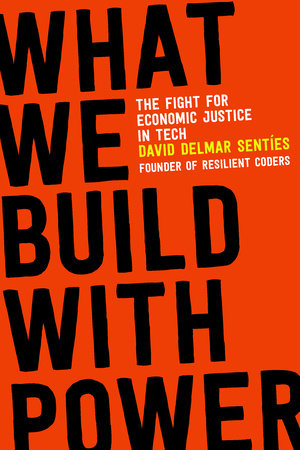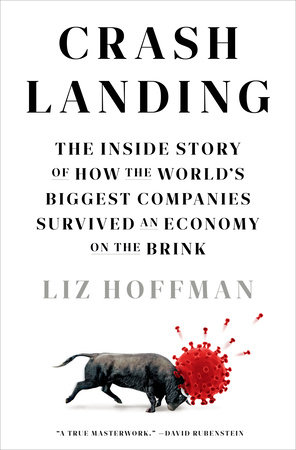Quick Summary
One Sentence Summary
“The AI Dilemma” by Art Kleiner and Juliette Powell explores the complexities and ethical challenges posed by artificial intelligence in modern society.
Big Idea
The book delves into how AI impacts our lives, both positively and negatively, urging a balanced approach to harness its benefits while addressing its risks.
Five Key Ideas
- AI’s Ethical Implications: Examining the moral dilemmas AI presents, like privacy concerns and decision-making biases.
- AI in the Workplace: Discussing AI’s role in job automation and the future of work.
- AI and Social Interaction: Exploring AI’s influence on human relationships and communication.
- Regulating AI: The need for policies and regulations to manage AI development and use responsibly.
- AI’s Future Potential: Envisioning how AI could evolve and shape our future society and environment.
Actionable Advice
- Stay Informed: Encouraging readers to keep abreast of AI developments and their societal implications.
- Engage in Dialogue: Advocating for open discussions about AI’s role in society to foster a more informed and ethical approach.
- Promote Responsible Use: Urging individuals and organizations to use AI ethically and responsibly.
About the Author
Art Kleiner is a renowned author and strategist, known for his insights into technology and society, while Juliette Powell is a technology and AI expert, blending her knowledge of AI with its social impact.
Read Next
For those intrigued by the ethical aspects of technology, consider “Weapons of Math Destruction” by Cathy O’Neil, which explores how algorithms shape our world. For a deeper dive into AI’s potential, “Life 3.0” by Max Tegmark is a compelling read. To understand AI’s impact on the economy, “The Second Machine Age” by Erik Brynjolfsson and Andrew McAfee offers valuable insights.
In Depth
AI’s Ethical Implications
Artificial Intelligence (AI) isn’t just about cool robots and smart gadgets. It’s a big deal because it affects real people and real choices. In “The AI Dilemma,” Kleiner and Powell dive deep into this. They’re not just talking tech. They’re talking about right and wrong, who gets hurt, and who gets helped.
One major point they hammer home is how AI can be biased. Not like your grumpy uncle, but in a sneaky, computer way. They give this example of a hiring algorithm. Imagine a company that’s been hiring more men than women for years. They decide to use AI to pick new employees, thinking it’s all fair and square. But here’s the twist: the AI learns from past hires, so it starts favoring men, too. It’s like a bad cycle, and it’s not even trying to be mean. It’s just what it learned.
Kleiner and Powell say, “AI mirrors our world, with all its beauty and ugliness. When we let AI make choices, we need to ask, ‘Whose values is it following?'” This quote isn’t just fancy talk. It’s a real wake-up call. It’s saying, hey, if we’re not careful, AI could keep making the same old mistakes we do.
It’s not all doom and gloom, though. The book shows how we can make AI play fair. Things like being super clear about what we want from AI and checking its work, like a teacher with a red pen. And it’s not just on the tech nerds. Everyone’s got a part to play, from the big bosses to the regular Joes and Janes.
So, when we chat about AI, it’s not just about the latest gizmo. It’s about making sure it treats everyone right. It’s like a team sport where everyone’s gotta keep an eye on the ball. If we do it right, AI can be this awesome tool that helps us all out, not just a few lucky ones.
AI in the Workplace
AI’s not just a sci-fi thing. It’s here, changing how we work. It’s big news for jobs and businesses. The book gets into how AI’s not just replacing old jobs, but making new ones too. It’s like a game changer.
One story they tell is about a factory. This place starts using robots for the boring, tough jobs. At first, people are scared. They think, “Are the robots taking our jobs?” But here’s the twist. The robots handle the dull stuff, and the workers get to do the cooler, more creative tasks. It’s like the robots aren’t stealing jobs; they’re changing them.
The authors drop this line: “AI in the workplace isn’t a job thief; it’s a job shifter.” That’s a big point. It means AI’s not just kicking people out of jobs. It’s more like it’s moving the goalposts. New skills, new roles, new game.
This shift means we gotta learn new tricks. It’s not enough to just do what we’ve always done. We’ve got to keep up, learn about AI, and how to work with it. It’s like learning to drive a new, fancy car. A bit scary at first, but cool once you get it.
But it’s not all smooth sailing. The book warns about getting too cozy with AI. Like, if we rely on it too much, we might forget how to do stuff ourselves. It’s a balance. Use AI, but don’t get lazy.
In the end, AI in the workplace is like having a new teammate. It can do some stuff better than us, but it still needs us. We’ve got to work together, play to our strengths, and keep learning. That’s how we stay ahead in the game.
AI and Social Interaction
AI’s not just about work. It’s also changing how we talk and connect with each other. It’s like having a new player in the game of social life.
The book dives into this story about a school using AI chatbots. These aren’t your average chatbots; they’re designed to chat with students, kind of like digital buddies. Some students start opening up to these bots, sharing stuff they don’t even tell their friends. It’s weird, but it’s happening.
The authors point out, “AI can be a bridge or a barrier in human connections.” This quote hits the nail on the head. AI can help us talk more, understand each other better. But if we’re not careful, we might end up chatting with bots more than real people.
This AI and social interaction thing is tricky. On one hand, AI can be this cool tool that helps us learn more about each other. Like, imagine an AI that helps you learn a new language by chatting with you. That’s awesome.
But on the flip side, there’s a risk of getting too hooked on AI. Like, if we spend all our time talking to chatbots, we might forget how to chat with real humans. It’s like using training wheels too long and never really learning to ride a bike.
The book suggests a balance. Use AI to enhance our social skills, not replace them. It’s like having an assistant in a conversation, not a replacement.
So, AI and social interaction is about using tech to boost our people skills, not to hide from real talk. It’s about keeping it real, even when the tech is super cool.
Regulating AI
When it comes to AI, it’s not just a free-for-all. There’s a real need to keep things in check. The book digs into how important it is to have rules for AI, so it doesn’t go off the rails.
Take this story they share about a city rolling out AI surveillance. Cameras everywhere, AI analyzing faces and movements. Sounds like a sci-fi movie, right? But here’s the thing: people start worrying about their privacy. They’re like, “Who’s watching us and why?” It’s a real concern.
The authors drop this line: “With great power comes the need for great responsibility, especially in AI.” It’s spot on. AI’s powerful, but without rules, it’s like a car without brakes.
This whole regulating AI deal is about finding a middle ground. It’s not about stopping AI but guiding it. Like having speed limits on the road. You can still drive, just not like a maniac.
But it’s not just about making rules. It’s about making sure they’re fair and followed. The book talks about how everyone, from big tech companies to everyday folks, has a role in this. It’s a team effort.
So, regulating AI is crucial. It’s about making sure AI does good stuff, not creepy or harmful stuff. It’s about keeping the future bright, not letting it turn into a weird, dystopian movie.
AI’s Future Potential
Talking about the future of AI is like peeking into a crystal ball. It’s full of possibilities and what-ifs. The book isn’t just guessing; it’s giving us a real look at what could be down the road.
Here’s a cool example they bring up: AI in healthcare. Imagine a world where AI helps doctors diagnose diseases way earlier than now. It’s like having a super-smart assistant who never sleeps. In one case, they talk about an AI system that spots signs of a rare disease in a patient’s scans, something even top doctors missed. That’s game-changing.
The authors say, “AI’s potential is like a seed. With the right care, it can grow into something that truly benefits humanity.” This quote is about hope and responsibility. It’s saying AI could be amazing, but we’ve got to look after it right.
Thinking about AI’s future isn’t just sci-fi dreaming. It’s practical. Like, how do we make sure AI stays on the right track? How do we keep it helpful, not harmful?
The book talks about the need for innovation but with a conscience. It’s not just about building the most advanced AI but building it to make life better, not worse. It’s about thinking ahead, planning for how AI changes things like jobs, education, even how we interact.
So, the future of AI? It’s bright, but it’s on us to keep it that way. It’s about smart, careful steps, not just rushing forward. It’s about making a future where AI helps us, not scares us.
Actionable Advice
- Stay Informed: Keep up with AI news. It’s moving fast, and you don’t want to be left in the dust.
- Think Ethics: Always ask, “Is this AI doing the right thing?” Not just “Can it do it?”
- Learn the Basics: You don’t need to be a tech whiz, but understanding AI basics helps you stay savvy.
- Voice Concerns: See something iffy with AI? Speak up. Your voice matters.
- Embrace Change: AI’s changing jobs and life. Be ready to adapt and learn new skills.
- Promote Transparency: Push for clear info on how AI’s used, especially in public services.
- Support Fairness: Advocate for AI that’s fair to everyone, not just a few.
- Encourage Regulation: Back rules that keep AI safe and responsible.
- Foster Collaboration: AI’s a team game. Work with others to make it better.
- Plan for the Future: Think about how AI impacts tomorrow, not just today. Plan ahead.
About the Author
Art Kleiner, a seasoned writer and strategist, has made waves in the tech and business world. His journey began with a passion for understanding how technology shapes society. With a knack for breaking down complex ideas, Art’s writing career blossomed, leading him to become a sought-after voice in tech circles. His works often explore the intersection of technology, ethics, and the future of work, reflecting his belief that technology should be both innovative and responsible.
Juliette Powell, co-author and a tech guru, blends deep AI knowledge with insights into its social impact. Starting her career in technology, she quickly stood out for her ability to demystify AI and its societal implications. Juliette believes in using AI to enhance human capabilities, not replace them. She advocates for ethical AI practices, stressing the importance of understanding and regulating AI to benefit society as a whole.
Together, Kleiner and Powell are a powerhouse duo. Their combined expertise bridges the gap between technology and its real-world implications, offering readers a unique perspective on AI’s role in our lives. They champion the idea of responsible innovation, emphasizing the need for balance between technological advancement and ethical considerations.
Read These Next
You might like these similar books
- “Weapons of Math Destruction” by Cathy O’Neil
- “Life 3.0: Being Human in the Age of Artificial Intelligence” by Max Tegmark
- “The Second Machine Age: Work, Progress, and Prosperity in a Time of Brilliant Technologies” by Erik Brynjolfsson and Andrew McAfee
- “Superintelligence: Paths, Dangers, Strategies” by Nick Bostrom
- “Human Compatible: Artificial Intelligence and the Problem of Control” by Stuart Russell
Read These Next
You might like these similar books
- “Weapons of Math Destruction” by Cathy O’Neil
- “Life 3.0: Being Human in the Age of Artificial Intelligence” by Max Tegmark
- “The Second Machine Age: Work, Progress, and Prosperity in a Time of Brilliant Technologies” by Erik Brynjolfsson and Andrew McAfee
- “Superintelligence: Paths, Dangers, Strategies” by Nick Bostrom
- “Human Compatible: Artificial Intelligence and the Problem of Control” by Stuart Russell

